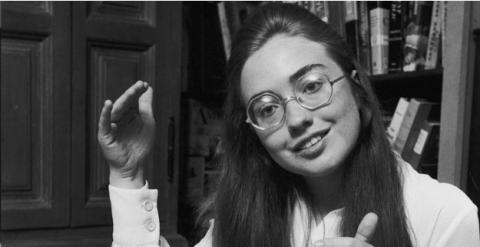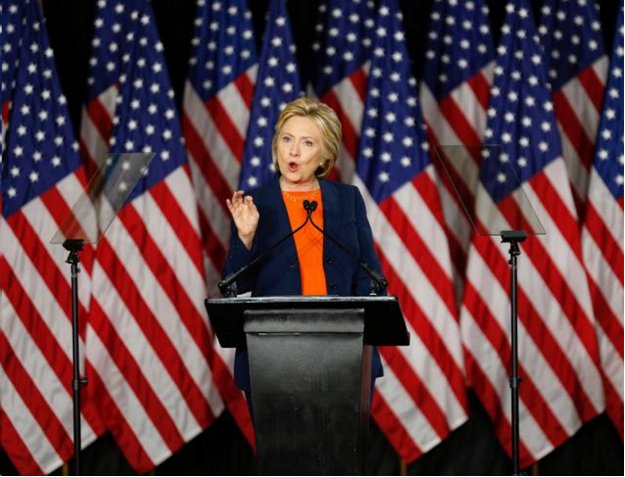Hillary Clinton Channels Her Inner Sixties

Adapted from an article originally published in Political Wire.
To me at least, one of the most memorable lines of conventions past is when the Reverend Jesse Jackson, speaking at the 1988 Democratic gathering in Atlanta, sought to explain that he is a far more complex person than his media caricature would suggest. “You see me on TV,” he said, “but you don’t know the me that makes me me.”
In many ways that can apply to all of us, but especially to politicians whose personae and character are mediated through the images we see and the news we consume. We like to think that these images say everything about the people we elect, that they give us real insight into what drives them and who they are. But maybe Jesse Jackson was right: what we imagine about politicians may say more about us than about them.
I thought of the Jackson quote because of the riddle inside the enigma that Hillary Clinton has been to so many of us over the years. And I began to wonder if the chattering class that gets paid princely sums to pontificate has gotten her all wrong. Perhaps we’ve misinterpreted those characteristics that pundits and critics alike have labeled as guarded, defensive, calculating, and secretive — a Machiavelli in heels, as so many have called her.
And here’s why. Hearing her biography over and over during the Democratic convention confirmed one undisputed fact about her: she’s not only “from the Sixties,” as she said at a Democratic debate last year, but she’s of the Sixties. And she’s of a very specific side of the Sixties, the earnest activists who wanted to transform the world by digging deep into policy and challenging outdated norms and practices.
For these activists, the popular phrase “question authority” had both a political and personal meaning — political because they were going up against an entrenched society built on values they wanted to change, and personal because they distrusted anyone whose ego seemed greater than the movement of which they claimed to be part. These were behind the scenes types, the activists who toiled away at the Legal Services Corporation or went South as Hillary Clinton did to challenge school segregation. Participatory democracy was their mantra, and they suspected anyone who tried too hard to lead. They looked askance at the class presidents as more image than substance, they believed virtue and not public relations would yield results, and when journalists wanted to write about them, they said no, write not about us but about what we do.

Ours is a culture in which celebrity is a career. Contestants on The Apprentice or Survivor hire agents, show up on game shows, and get paid on the speaking circuit. So we simply assume that people do things for the fame, not the substance, for the power, not the morality. Now Hillary Clinton is a public figure, and in an era of wall-to-wall PR it’s hard to argue that she’s not playing the game.
But perhaps she simply backed into it. Perhaps she’s that Sixties activist at heart who preferred behind-the-scenes advocacy and the humility of action — but got drawn into politics as a result of her husband’s career. Perhaps she is a reluctant politician, not a Machiavellian schemer. Perhaps she sees the presidency as a vehicle for change, not a driving ambition. And perhaps because we are so accustomed to politicians who thrive on attention, we are simply mistaking her discomfort with the process as arrogance. It may well be that the Hillary of 2016 remains the activist driven by her inner Sixties.
It’s been said that the close-up photograph of a century-and-a-half ago changed the relationship we have with our presidents, turning it from a civic to an emotional connection — that we see their image and then project onto them our own hopes and desires, fears and uncertainties. So perhaps Jesse Jackson was right. We may have seen him on TV. But “you don’t know the me that makes me me.” Something to think about as we make our judgments about the woman who may become president of the United States.
Adapted from an article originally published in Political Wire.
Author Bio:
A former speechwriter and strategist for causes, candidates, and members of Congress, Leonard Steinhorn has written two books on American politics and culture and frequently writes for major print and online publications. He is currently a professor of communication at American University and a CBS News political analyst.































































































































































































































































































































